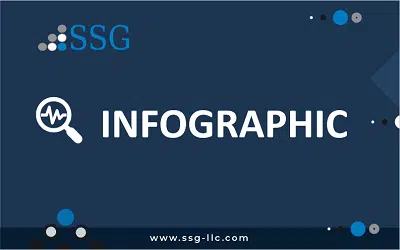Lead Poisoning Prevention Week Infographic | SSG


National Lead Poisoning Prevention Week
The event takes place October 22–28 in the U.S. to raise awareness about lead poisoning prevention, including how state, local, and tribal governments can reduce childhood lead exposure with regular testing, home and environmental inspections, and proper data collection.
How to Prevent Childhood Lead Poisoning
Childhood lead poisoning is preventable. The Centers for Disease Control and Prevention (CDC) and Environmental Protection Agency (EPA) recommend:
- Educating adults, parents, caregivers, and businesses on the dangers of lead exposure and where it is most likely to be found, including lead-based paint in homes built before 1978, lead dust, and contaminated drinking water, soil, and air.
- Testing children at risk of lead exposure for elevated blood lead levels and remember that no safe blood lead level in children has been identified.
- Providing timely follow-up care and treatment to children with elevated blood lead levels while monitoring their symptoms.
- Inspecting and remediating lead-based hazards in the community as soon as they have been detected.
- Sharing childhood and community lead poisoning data with public health officials to predict and prevent future outbreaks.
Reducing Childhood Lead Poisoning with Casetivity-CLPPP
SSG’s Childhood Lead Poisoning Prevention Program (CLPPP) application simplifies the data collection process for state, local, and tribal governments to reduce the number of children with lead poisoning. It’s a modular, configurable, web-based software solution designed to increase efficiency for public health departments working to mitigate childhood lead poisoning. Outdated paper records systems and siloed data prevent timely analysis and remediation.
Public health officials can use SSG’s Casetivity-CLPPP to:
- Automate end-to-end workflows, such as creating checklists, gathering signatures, and populating multiple forms, to free additional resources
- Instantly send and receive patient test data from labs and other private healthcare providers and organizations
- Cleanse incoming patient and community health data for system integration
- Coordinate timely site inspections of affected areas while managing the cleanup process
- Manage the outreach, care, and coordination of services for a child who tests positive for lead poisoning
- Quickly adjust the modular design and user interface as the reporting guidelines change
- Give public health workers more time to follow up with patients and implement effective prevention strategies
- Remotely manage and authenticate user access based on their role within the organization
- Adhere to privacy regulations, including HIPAA, FERPA, and other public sector security standards
Every child deserves to be lead-free. Contact SSG to learn more about the benefits of our Childhood Lead Poisoning Prevention Program solution.